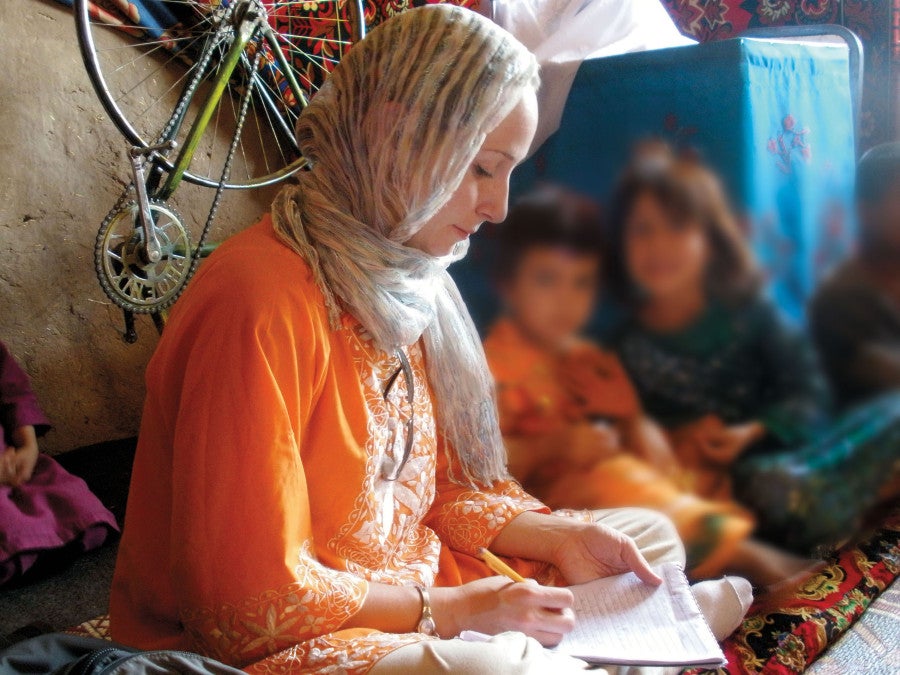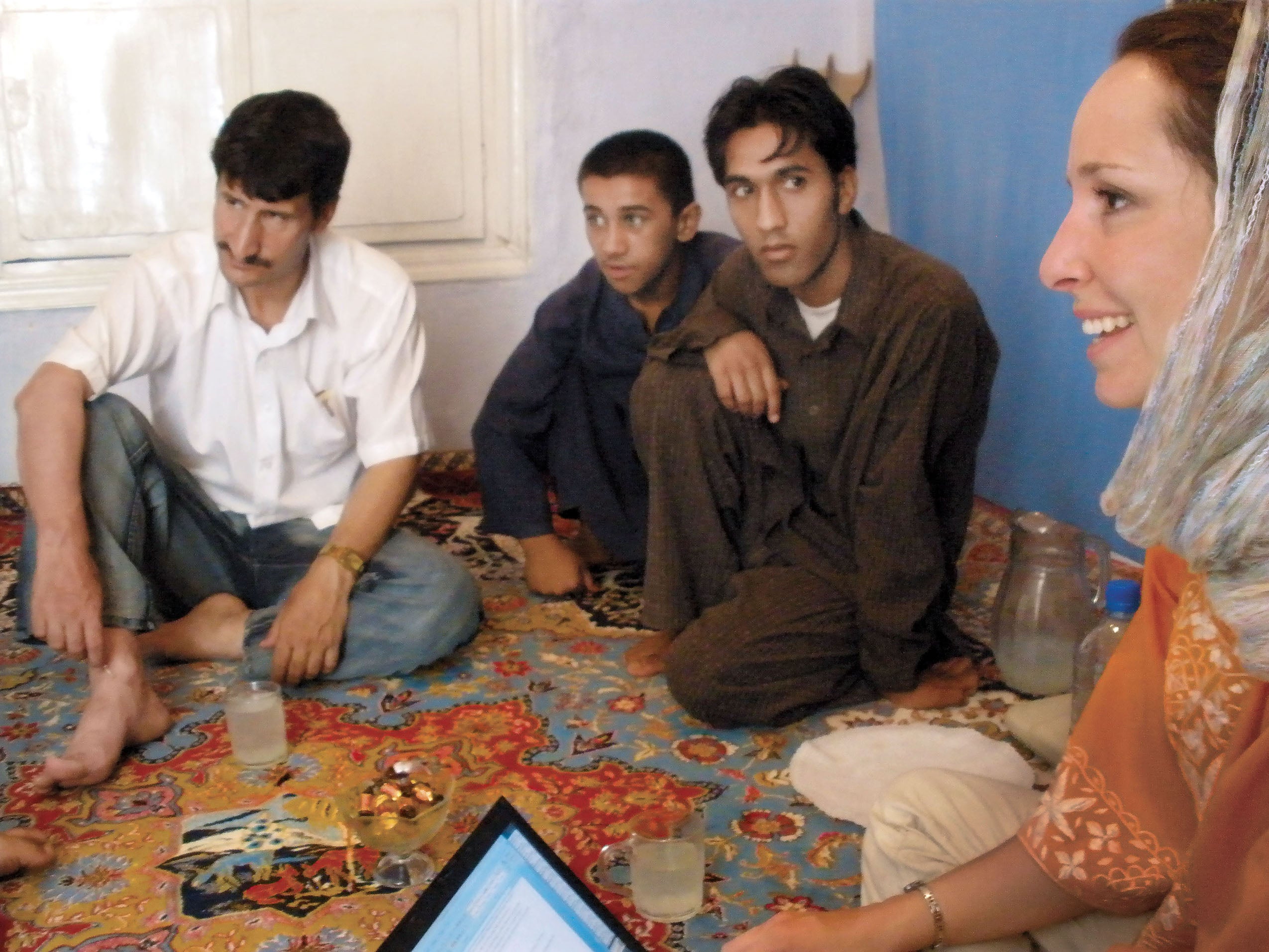“From 2007 to 2008, the number of civilians killed in Afghanistan’s ongoing conflict rose 40 percent, according to U.N. figures.” So begins the report co-written by Erica Gaston ’07, with Rebecca Wright, during Gaston’s Henigson Fellowship year in Afghanistan, which started in January 2008. The report, published by the Campaign for Innocent Victims in Conflict, vividly depicts the scale of civilian suffering in the country: “For every civilian killed, as many or more are injured, or lose their homes or livelihoods. Affected families struggle to rebuild their lives for years and sometimes generations after an incident.”
During her fellowship year, Gaston traveled around the country, interviewing Afghanis in their homes, “sharing some tea with them or some bread and listening,” gathering their stories of family members killed or wounded and tabulating the assistance made available to them by the warring parties. While Gaston and Wright’s research showed that “compensation and victim assistance are both possible and practical,” they also found that “a significant number of civilian survivors of combat operations receive no help from international forces, and those that do often find it is too little, too late.”
One boy Gaston interviewed for the CIVIC report had lost his legs in a cluster munitions explosion. He had not received any assistance, even though he was permanently disabled, and had been advised to talk to the Provincial Reconstruction Teams and other government officials for help. But, he said, “because I cannot walk, … I cannot go like you and others to meet with people to tell them what happened to me.”

When the report was released in February, it received significant attention, and Gaston played “talking head for a week on BBC, Al Jazeera, CNN International, Voice of America and other media outlets, [and made] presentations at think tanks and on the Hill,” she recalled. In the last week of her fellowship, Gen. David Petraeus, head of U.S. Central Command, sent her a personal invitation to meet with him. She flew back again from Kabul to Washington, D.C., and found Petraeus “very receptive” to the report’s findings and recommendations.
The report stated that “2008 proved to be one of the deadliest years for civilians since the conflict began,” and, especially in the fall, Gaston was affected by the increased violence. “There were a couple of incidents back to back,” she recalled, including the near-kidnapping of her former housemate. “There was this tension in the air. There was a lot of targeting.” Many people scaled back travel, and Gaston counted herself lucky that by then she had finished most of her research.
But Gaston spoke of her time in Afghanistan as a year of “trust-building”—trust in her ability to handle the security risks and to figure out whom she could rely on. Back in her family home in New Orleans for a visit, she joked that her mother, too, had been affected: “She’s built a little bit more of a tolerance for insecure zones than maybe she would like.”
In April, Gaston accepted a position with the Open Society Institute that will take her back to the region. Her new job will focus more on advocacy and networking with other NGOs—CIVIC among them—on civilian casualty issues in Pakistan and Afghanistan, including victim compensation. She said she will be “shuttling between D.C. and Kabul and Islamabad quite a bit,” working both with policymakers and on the grassroots level.
Looking back on the results of her fellowship year, Gaston felt that she had been able to make some small changes, helping one family at a time, and give them voices on the international stage. She also expressed affection for the people she had met. “If I look back at the hundreds of pictures that I have, I can remember each family. I can remember what that living room looks like … that was the one where I started to tear up, or that was the one where the host decided to feed me meat with his hands!” she said, laughing and sounding surprised at the memory.
